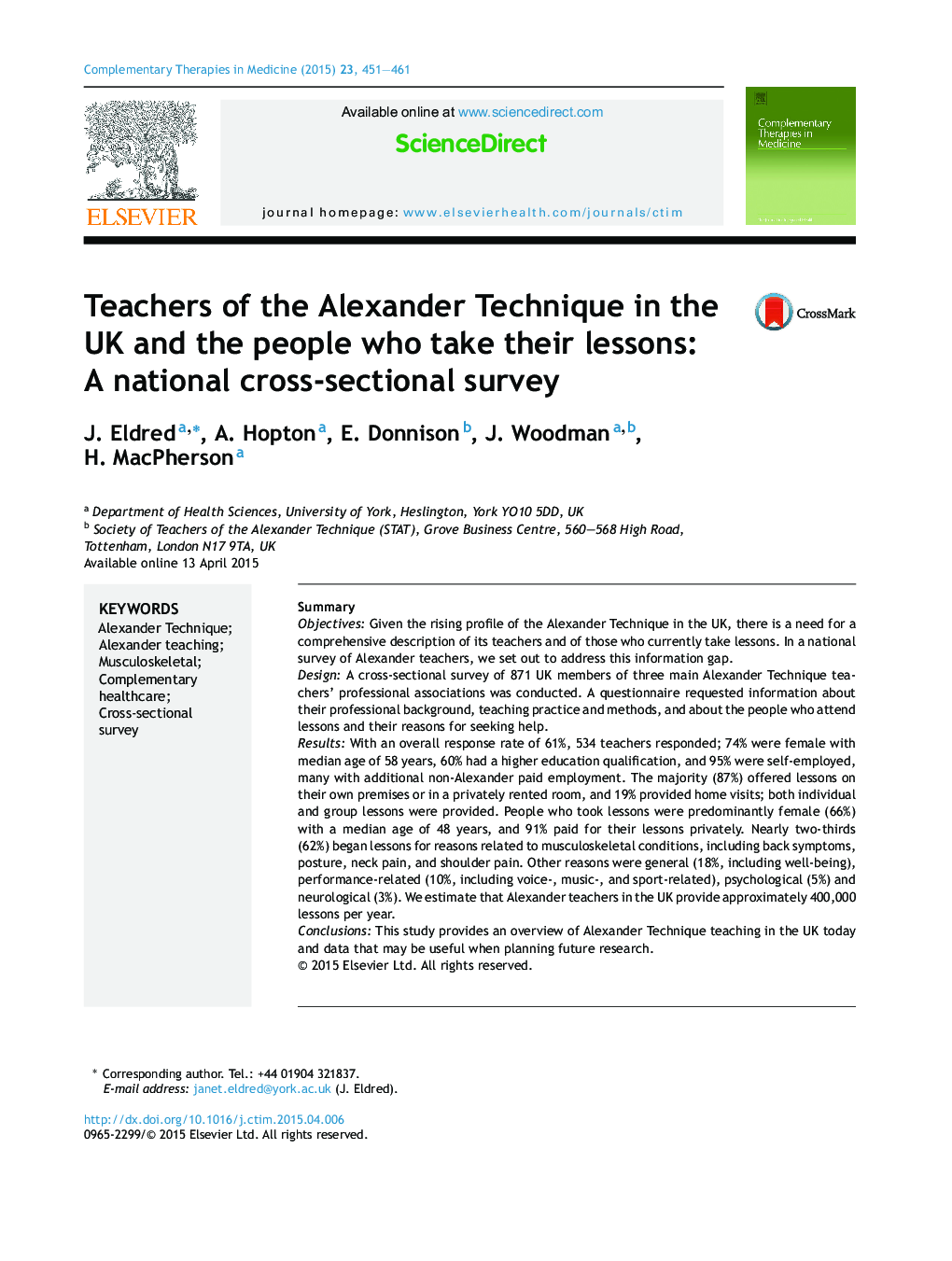| Article ID | Journal | Published Year | Pages | File Type |
|---|---|---|---|---|
| 2629149 | Complementary Therapies in Medicine | 2015 | 11 Pages |
•We surveyed UK members of the 3 main Alexander Technique teachers’ associations.•Teachers tend to be self-employed, female and educated to at least degree level.•People who take lessons tend to be female, with a median age of 48 years.•They usually seek lessons because of musculoskeletal or performance-related issues.
SummaryObjectivesGiven the rising profile of the Alexander Technique in the UK, there is a need for a comprehensive description of its teachers and of those who currently take lessons. In a national survey of Alexander teachers, we set out to address this information gap.DesignA cross-sectional survey of 871 UK members of three main Alexander Technique teachers’ professional associations was conducted. A questionnaire requested information about their professional background, teaching practice and methods, and about the people who attend lessons and their reasons for seeking help.ResultsWith an overall response rate of 61%, 534 teachers responded; 74% were female with median age of 58 years, 60% had a higher education qualification, and 95% were self-employed, many with additional non-Alexander paid employment. The majority (87%) offered lessons on their own premises or in a privately rented room, and 19% provided home visits; both individual and group lessons were provided. People who took lessons were predominantly female (66%) with a median age of 48 years, and 91% paid for their lessons privately. Nearly two-thirds (62%) began lessons for reasons related to musculoskeletal conditions, including back symptoms, posture, neck pain, and shoulder pain. Other reasons were general (18%, including well-being), performance-related (10%, including voice-, music-, and sport-related), psychological (5%) and neurological (3%). We estimate that Alexander teachers in the UK provide approximately 400,000 lessons per year.ConclusionsThis study provides an overview of Alexander Technique teaching in the UK today and data that may be useful when planning future research.
